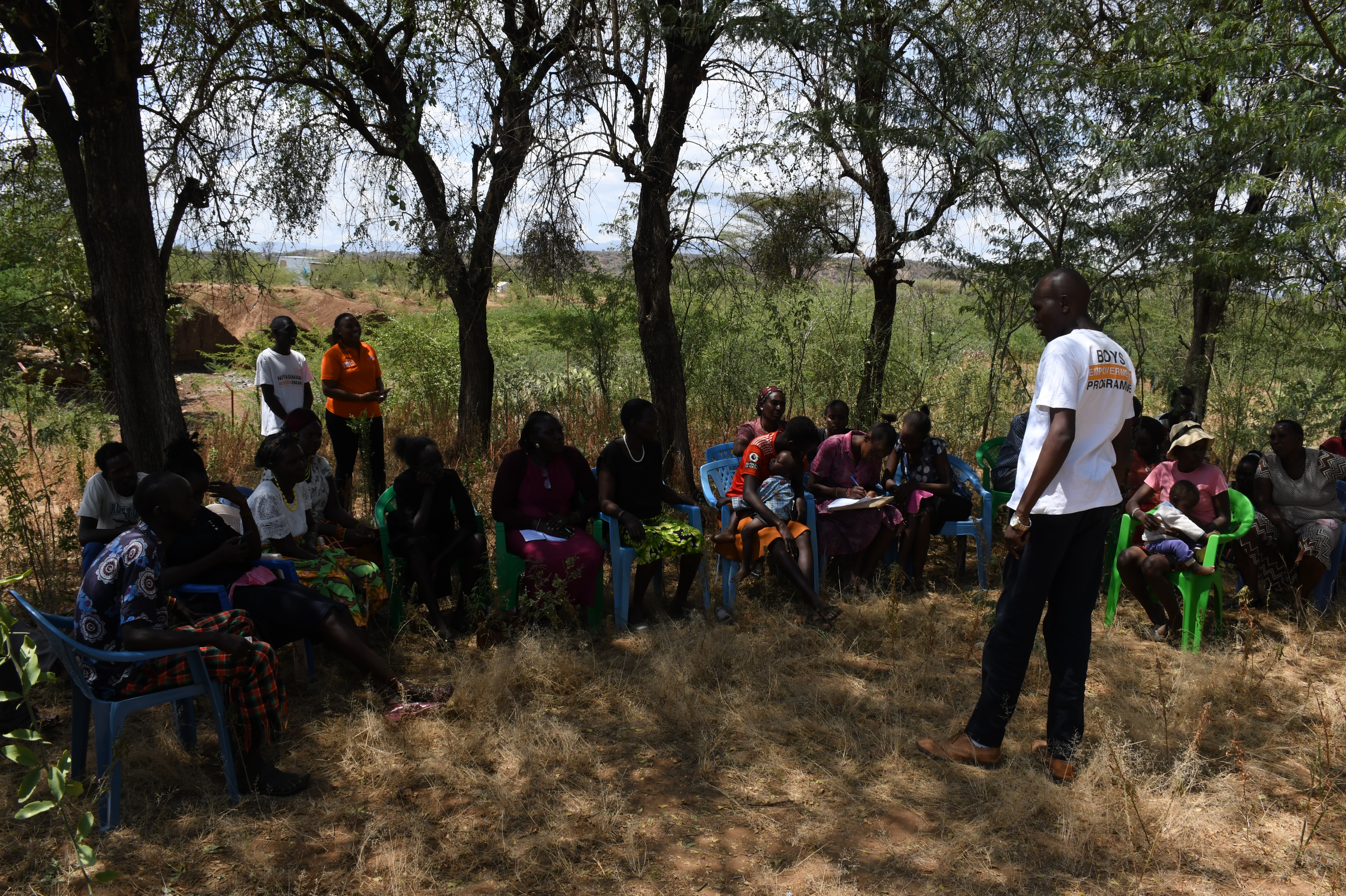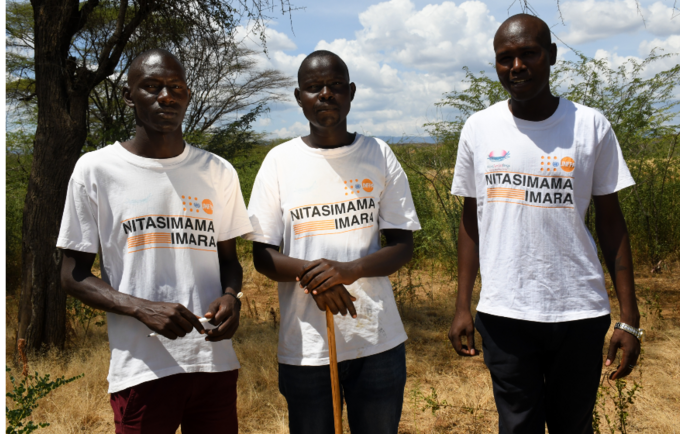Bravely walking around in his community, displaying the skills of a fully trained and responsible community influencer, is Nitasimama Imara champion Felix Ledaa who hails from Elgeyo Marakwet county. He is among 90 male champions trained by UNFPA and Thriving communities Africa on combating gender-based violence, female genital mutilation (FGM) and child marriage in communities with a high prevalence of these harmful practices.
“Nitasimama Imara’ is a Swahili phrase meaning ‘I will stand firm,’ and is a commitment made by young men and boys in the programme to stand up against gender-based violence, FGM, and child marriage, and to support women and girls' empowerment in their communities. Ledaa and other Nitasimama Imara champions work around the clock to sensitize other men and boys in the community on the negative effect that practices such as FGM and child marriage have not only on women and girls but on families and the community.
“In my work as a male champion, I am confronted with stories of violence and abuse suffered by women and girls every day in the hands of men,” says Ledaa. Data from the Kenya Demographic and Health Survey 2022 key indicators report shows that 30.2% of women aged between 15-49 years in Elgeyo Marakwet County experienced physical violence in the 12 months preceding the survey, nearly double the national average of 16%.
Using the skills obtained from his training, Ledaa has been supporting other young men to be active participants in transforming social and cultural norms that reinforce harmful practices against women and girls. The network of male champions holds regular peer education sessions, community, and intergenerational dialogues, as well as digital outreach aimed at promoting and protecting the rights of women and girls.

intergenerational dialogues.
Nitasimama Imara equips young men with the knowledge and skills needed to effectively engage their communities on gender equality and to take action toward the prevention and response to gender-based violence, FGM, and child marriage. The male champions also work to promote issues such as girls’ education, women’s reproductive health, and rights, women’s economic empowerment, as well as equitable relationships within the community and at a household level.
“I love working as a champion for women and girls and influencing other men and boys to do the same. My goal is to empower even more champions to expand our work beyond the confines of my community, but this requires more financial support to initiatives geared towards men and boys,” says Ledaa. According to Ledaa greater investments in technology aimed at tracking FGM and GBV cases can also help to strengthen prevention and response efforts, with young people leading the way in the adoption of such technologies.
Nitasimama Imara has a built network of male champions across three counties in Kenya, including Elgeyo Marakwet, West Pokot, and Baringo. The programme also focuses on the personal development of men and boys by providing them with the information and tools to become the best version of themselves, including sexual and reproductive health, life skills, family planning, and self-awareness information.

